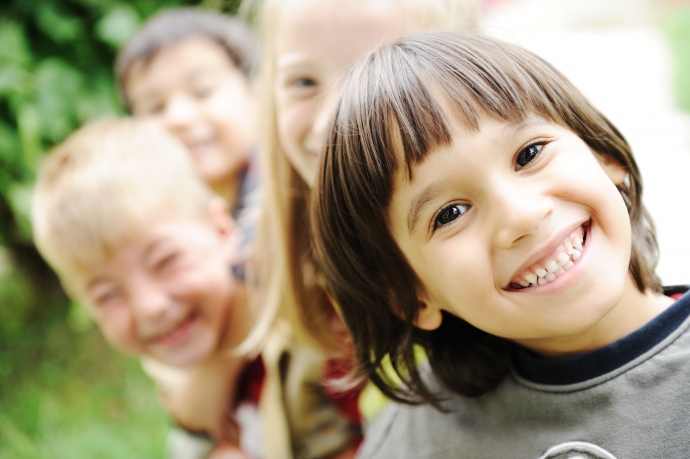Many parents of today look back on their childhoods with a sense of pleasant nostalgia thinking of all the wonderful things they had and the amazing times they shared with friends and family. They think back on yearly block parties, slumber parties and hours of outdoor play every day throughout the summer, and they fear that their children will not have these same experiences.

While not all changes can be labeled as bad or good, they must each be molded by the parents’ hands to create the best childhood years that are possible for this generation.
They Will Be Surrounded by Technology
There is no question that technology abounds. While older millennials had the beginnings of technology in their childhoods, it likely did not become such an all-consuming passion as it does now.
In years past, huge computers may have been used to play basic games, such as Oregon Trail, and small television sets were placed inconspicuously in many living rooms. Today, children are likely to have two or three flat-screen televisions in their homes, at least one video game console and Bluetooth-connected devices that do everything from playing music to giving weather reports.
While many households no longer have landlines, most children know the simply workings of a smartphone or iPad by the time they are four years old.
They Will Be More Likely to Be Educated in Non-Traditional Ways
Public schools have come under increasing scrutiny in the last couple of decades due to low test scores, dropouts and poor teaching quality. Many parents today prefer the flexibility that comes with non-traditional schooling methods, including virtual school, private school and home education.
Home education options, such as Connections Academy, flourish and allow parents to spend more one-on-one time with their children, have a direct say in their curricula and teach them family values.
They Will Probably Spend More Time Indoors
Due to increased technology and the scrutiny that has been put on many families for neglect, many children today either choose to spend most free time inside the home or have to stay inside because there is no adult to watch them outside. Many states have specific laws stating when children are allowed to be outside unsupervised. In addition, physical inactivity has become a nationwide epidemic for all ages.
They Will Use More Virtual Communication
In past generations, the majority of communication was done in person or on the phone. Today’s children will grow up in a world of emails, text messages, SnapChat and Instagram where they chat with family and friends using text or pictures.
They Will Have Easier Access to a Variety of Dietary Options
Diets have changed dramatically in recent years. Whereas white bread, low-fat yogurt and processed sugar was once a part of any child’s diet, many children now follow strict diets. Parents today are motivated to protect the health of their children and may do so by following gluten-free, dairy-free, nut-free, vegan, whole food or low-carb diets.
Of course, there are numerous other differences that this generation of children will experience. They may see more security protocols in airports, schools, government buildings and elsewhere. Because many extended families live far apart, children today may not grow up closely with their grandparents, aunts, uncles and cousins.
However, not all is bad with change. Children today often have healthier diets, have access to better health care and are empowered to learn faster by using technology. It is up to parents to work within these distinct changes to bring out the best within their children and to ensure that children have pleasant, educational and character-building childhoods that will prepare them for every aspect of adulthood.

